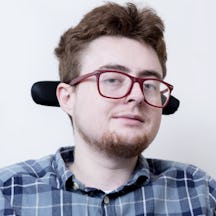I’m 26, and, like most people my age, building a network of friends and embarking on my career. Unlike most people my age, I’m entirely dependent on carers to achieve this.
“Everybody desires a degree of independence”
Words by Jamie Halephotography by Benjamin Gilbertaverage reading time 7 minutes
- Article
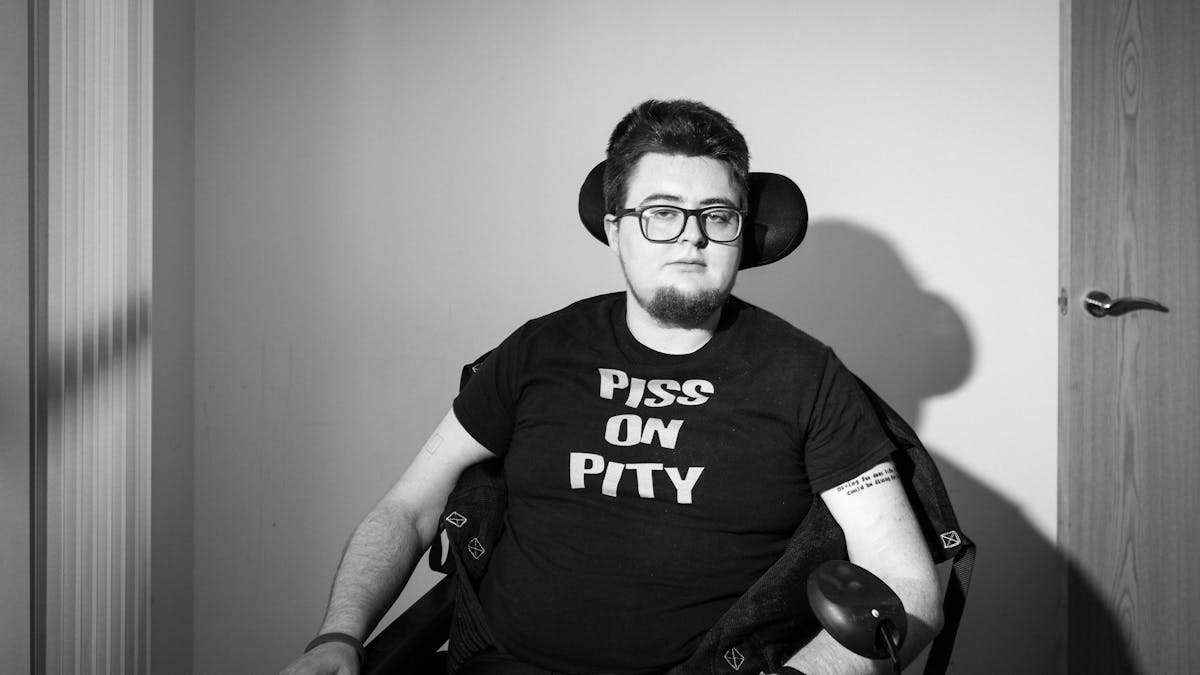
Rather than ‘carers’, I prefer to call my employees ‘personal assistants’, or ‘PAs’. This reframes the dynamic. Instead of coming in to ‘look after’ me, I employ them to meet my medical needs. As their employer, I have every legal responsibility associated with that role, as well as the moral responsibility to support them in their own careers, but I prefer this to using a care agency. It allows me to decide how I want them to work, and which of my needs I want them to meet.
I do have to decide which needs I want to have met, as the hours I am allocated for support are strictly limited. The current social care crisis is not an abstract concern, for it shapes the very contours of my life. The only reason I am not shut away in a care home is that I have a friend who looks after me all night, every night – drying me when my catheter leaks, getting me medication when my pain spikes, calling ambulances when I develop another life-threatening infection – but my friend has a full-time job and cannot do this forever.
I have applied for funding for the 24-hour care I need, but in the last two years I have met delay after delay, while my life shrinks to the size of my current care plan.
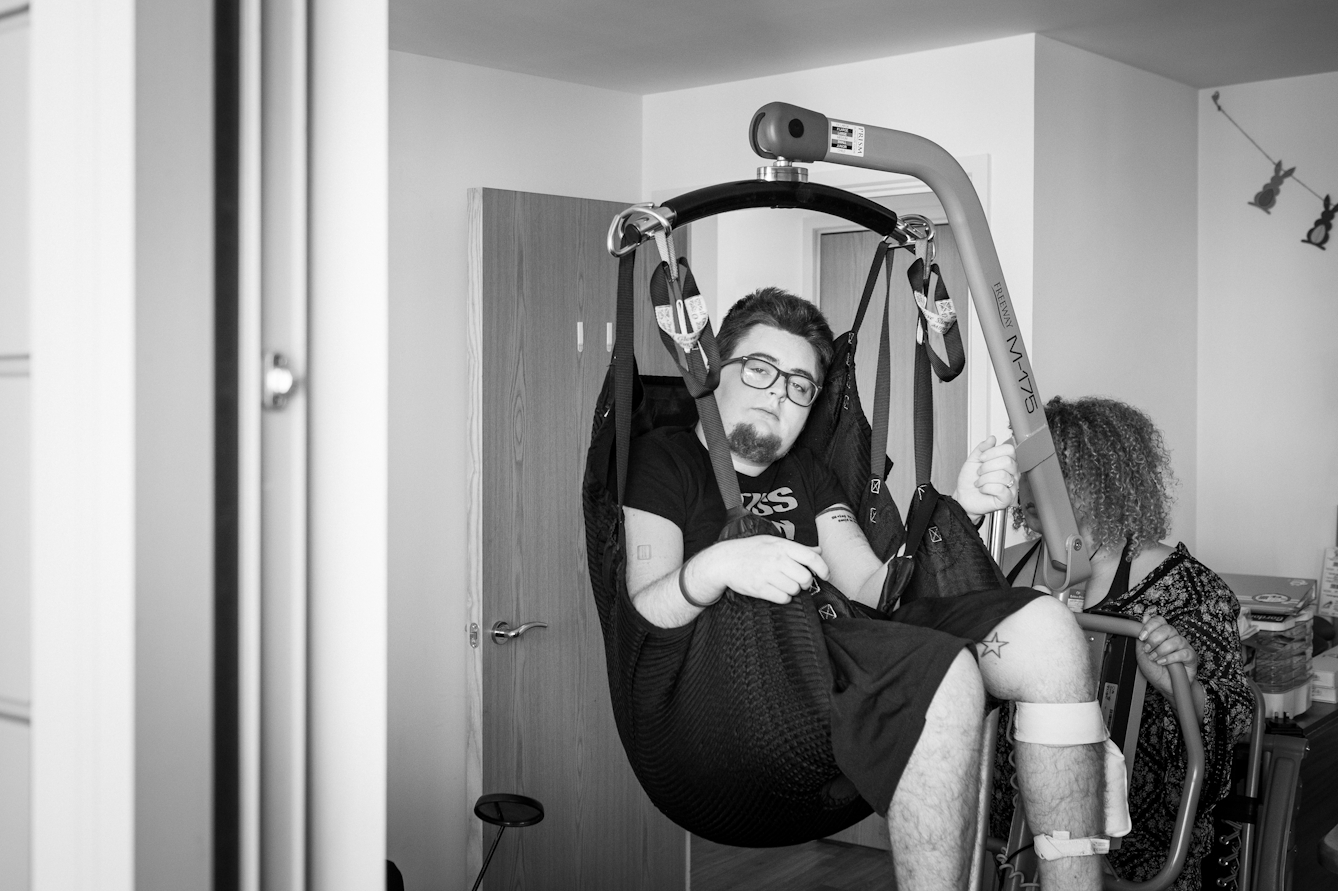
"The hidden housing crisis experienced by disabled people has left me living in a flat without the type of hoist that would lift me between chair and bed least painfully."
Dignity and indignity
I wake up at 07:30, and my friend gives me what I need before heading to work. There are then two hours before the first carer of the day arrives at 09:30. If my catheter leaks in this period, I am left lying in a pool of urine, unable to do anything except wait. As with all employees, sometimes the PA is late or absent. This may mean waiting even longer, soaking wet, and with a rash spreading across my skin.
Even once the carer has arrived, my options for getting clean are limited. If I want to have a shower, I can’t simply go to the bathroom – I need to be lifted into a commode chair, and wheeled out of my building and along to the local sports centre to be showered in an accessible shower, because my flat doesn’t have one. This process feels lengthy and undignified – my lower body clad only in a towel – but I have no other choice.
There is very little fully adapted housing stock owned by councils, and the wait for this is long. When I graduated from university, my options were limited – I could move into my parents’ house, in a small town, or I could move to London with a housemate. I knew if I ever wanted to build an independent life, I would have to leave home.
The residency requirement for eligibility for council housing in my borough is five years, and there is no adapted housing on the private rental market. The hidden housing crisis experienced by disabled people has left me living in a flat without a bath or shower I can use, without a kitchen I can use, without the adaptions I need to safely use the toilet independently, without the type of hoist that would lift me between chair and bed least painfully, without even a front door I can open independently. If I don’t have a carer present, I am imprisoned in my home.
In pictures
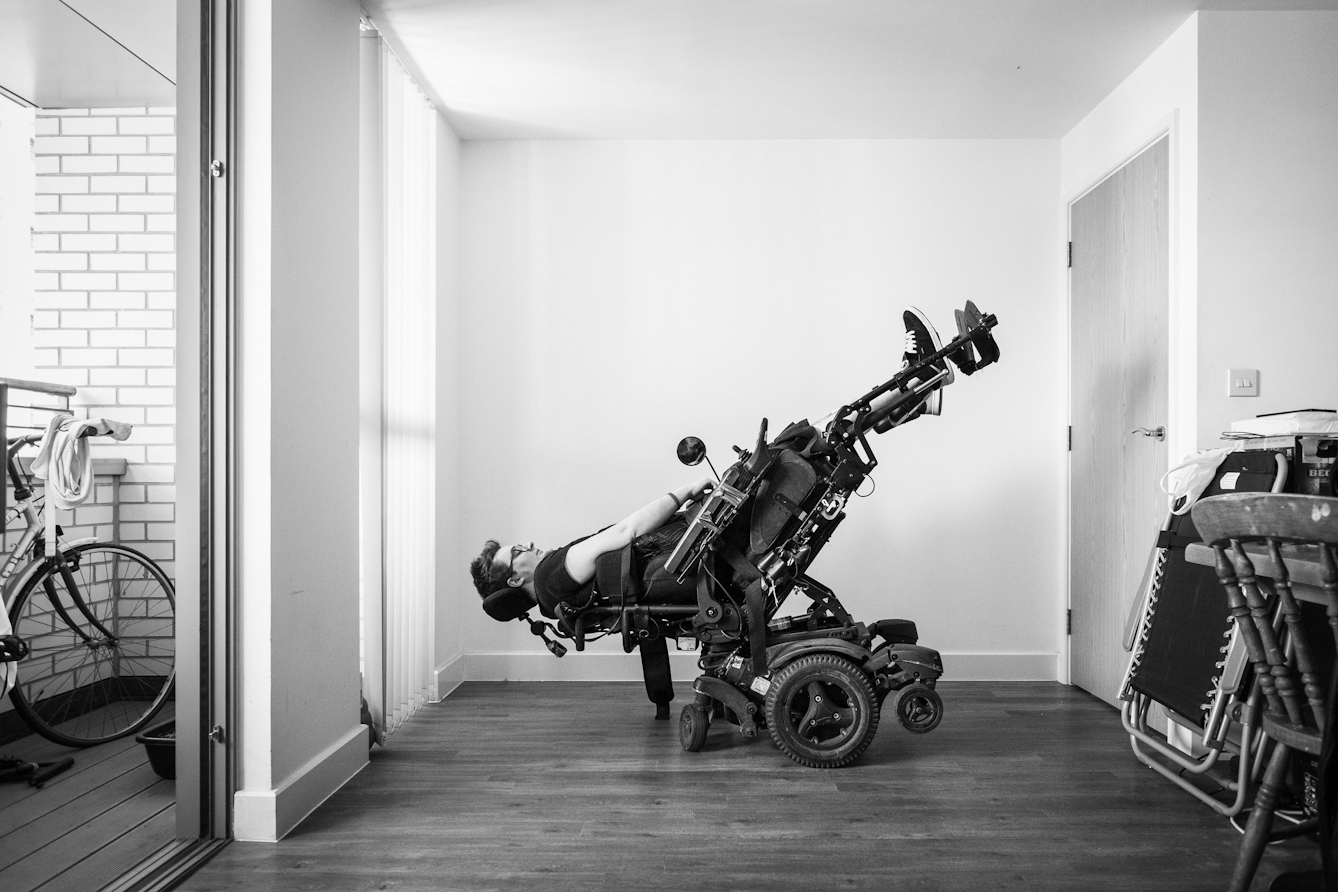
I have an active intellectual life, and am hoping to do a master’s and PhD, but I keep coming up against the limitations of my care plan. Society seems designed to trap disabled people in poverty and dependency, instead of giving us the resources we need to live self-directed and meaningful lives.
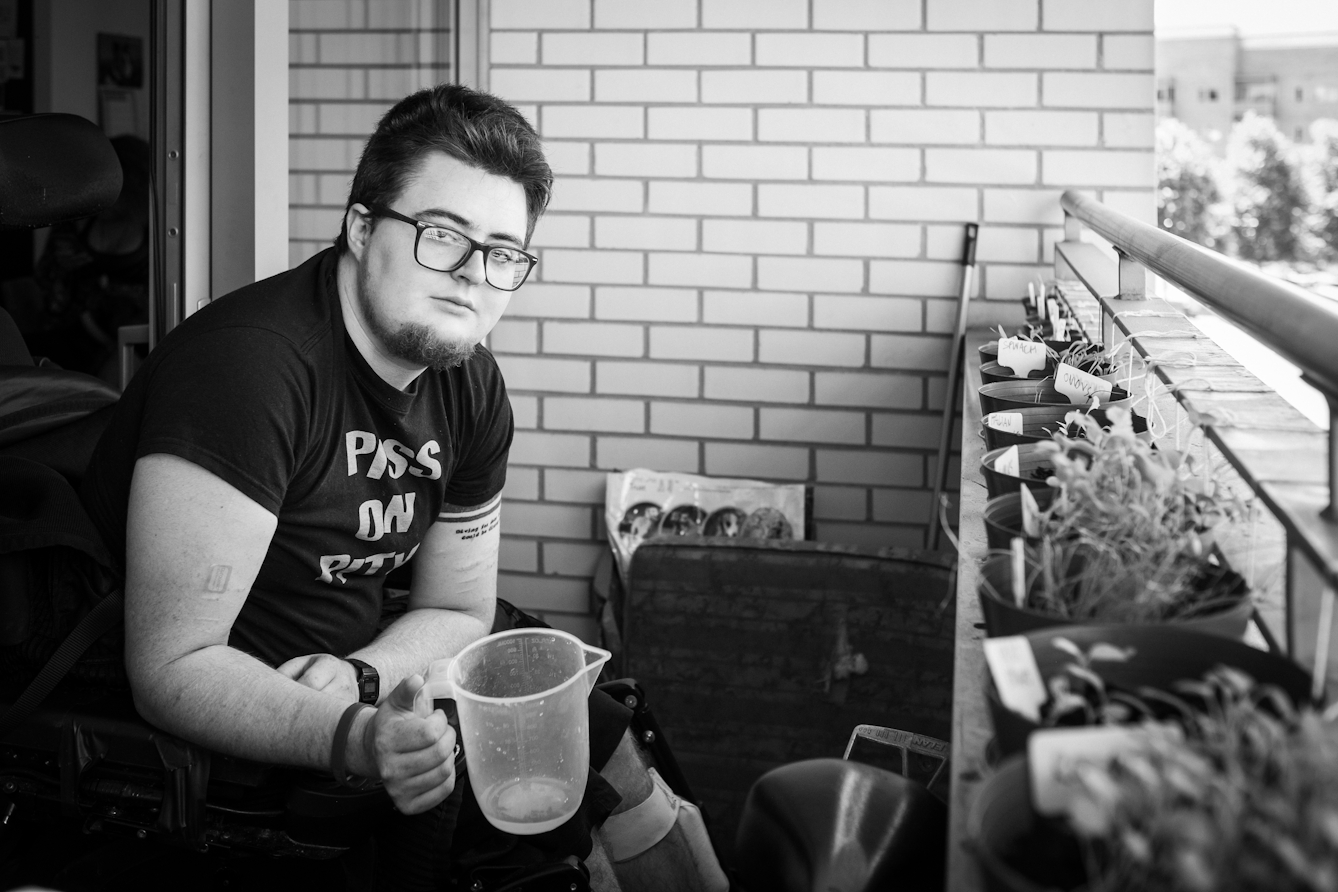
‘PISS ON PITY’ is a slogan dating back to the earlier years of the disability rights movement and the independent living movement. This slogan identifies disabled people as demanding not to be pitied, and instead to be treated as equal human beings.
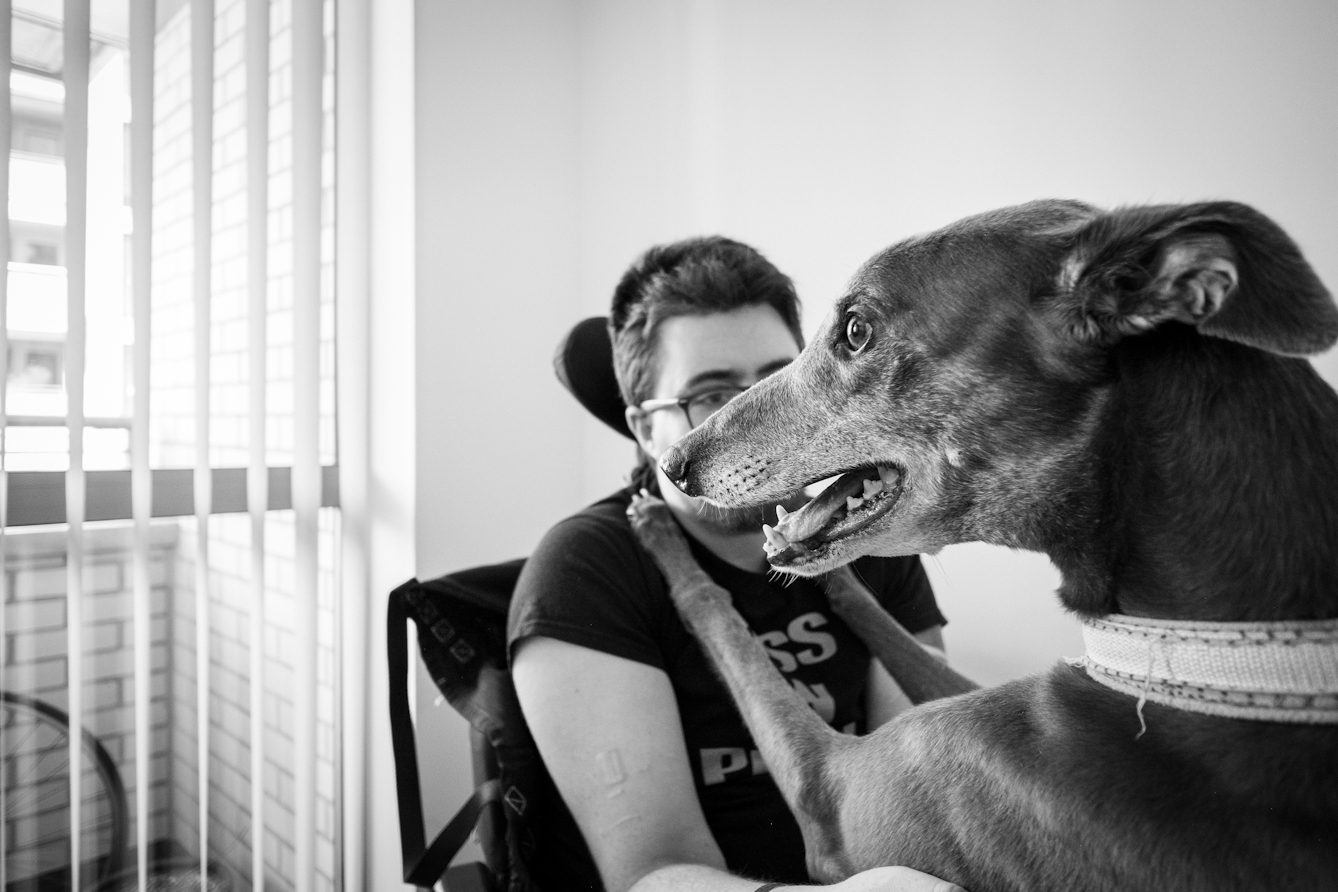
My greyhound, Frampton, is the centre of my life. I have to organise myself very carefully in order to meet his needs and my own, but my love for him is so enormous this feels like nothing. Without him, I often think I’d just give up and go into a care home, but he keeps me striving for a better life.
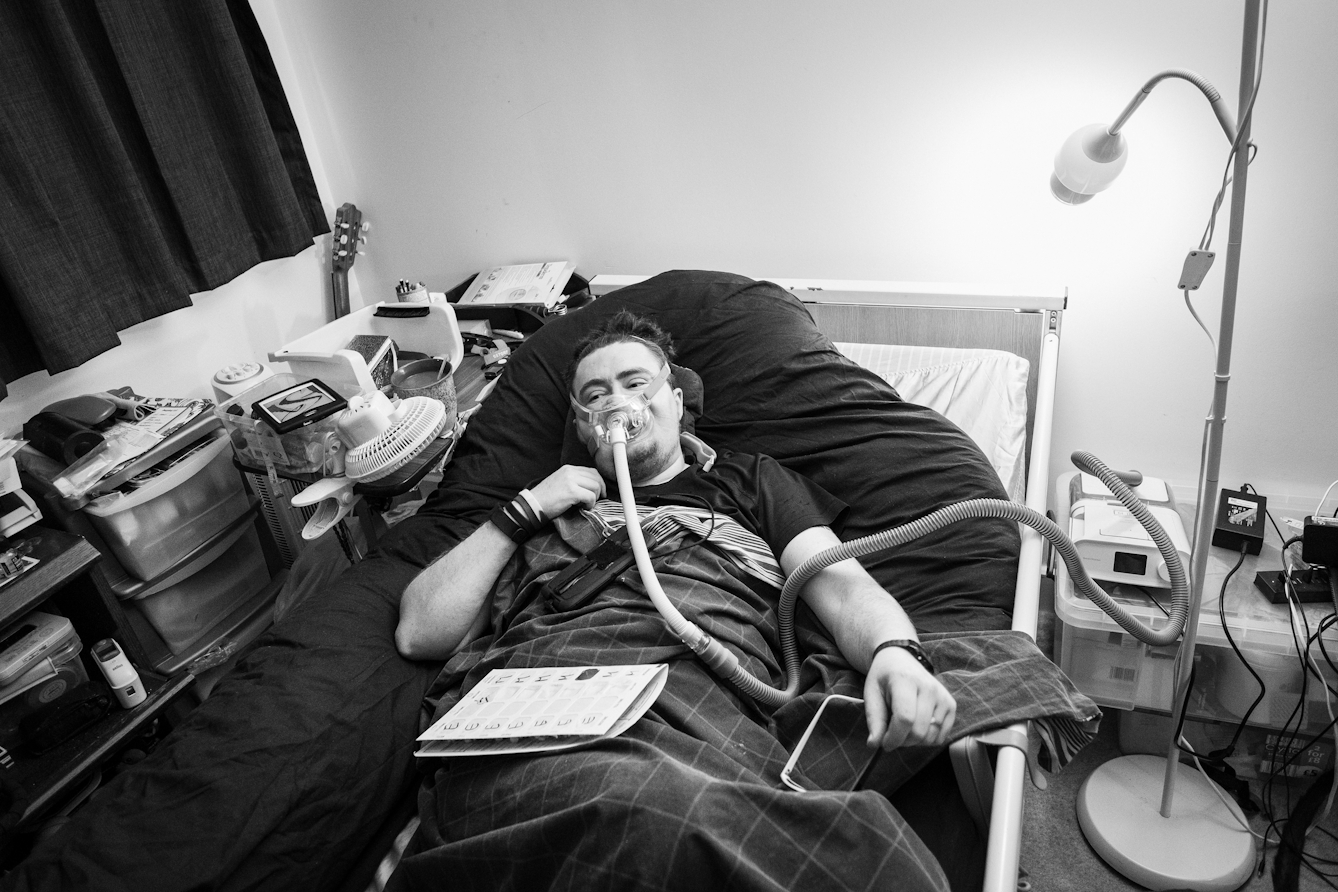
While my health conditions have shaped parts of my life, they are not the biggest limitation I face. I can manage the impact they have on my life, but I cannot cope long-term with the limitations of my inappropriate care package or housing.
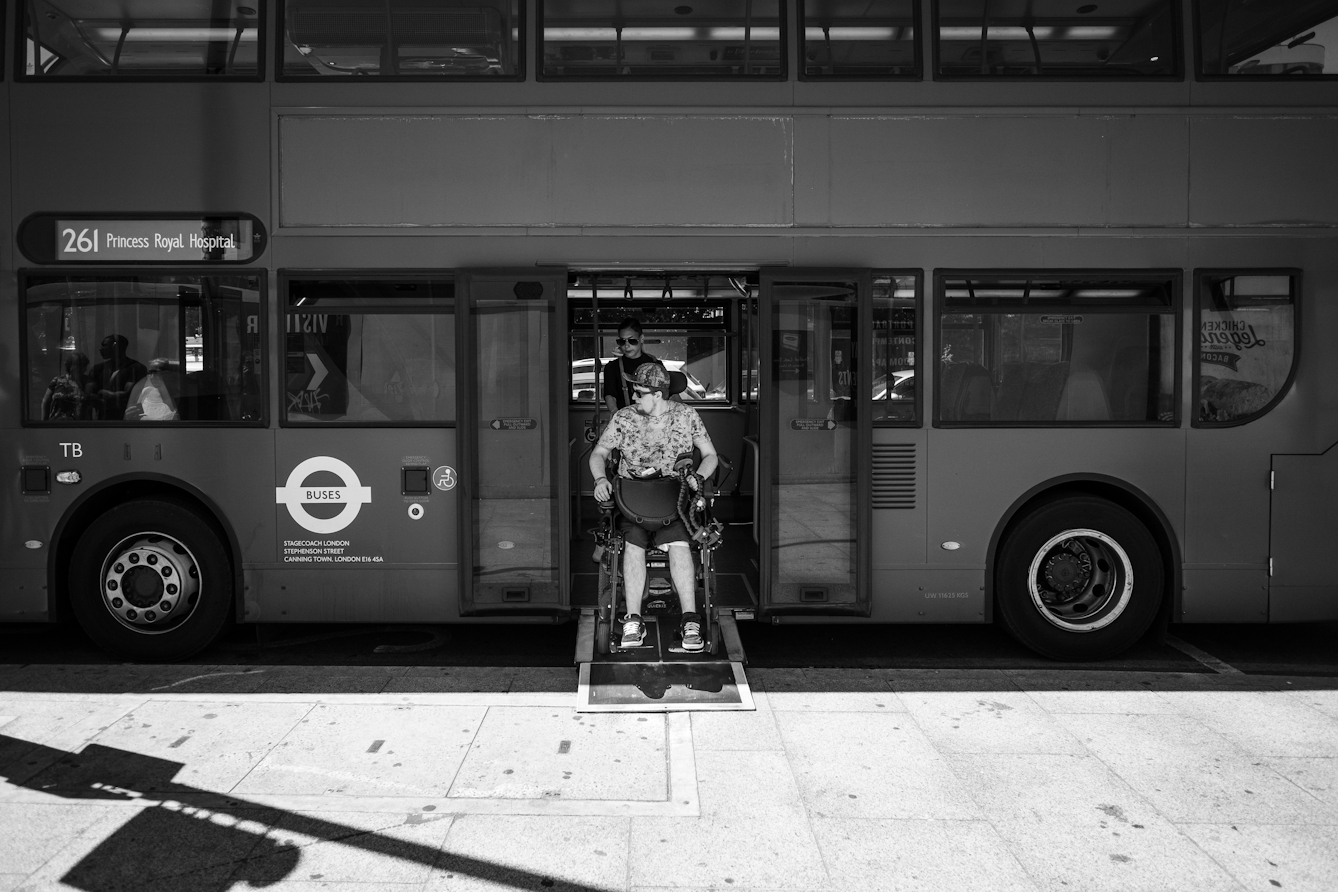
The limitations of my care hours mean that I often don’t have the support I need to go out. When I do, it’s frequently to get me to an appointment, no more. This leaves me feeling very low, like I’m being prevented from being able to enjoy the young, independent life my friends experience. It isn’t my impairment that prevents me, it’s a lack of care.
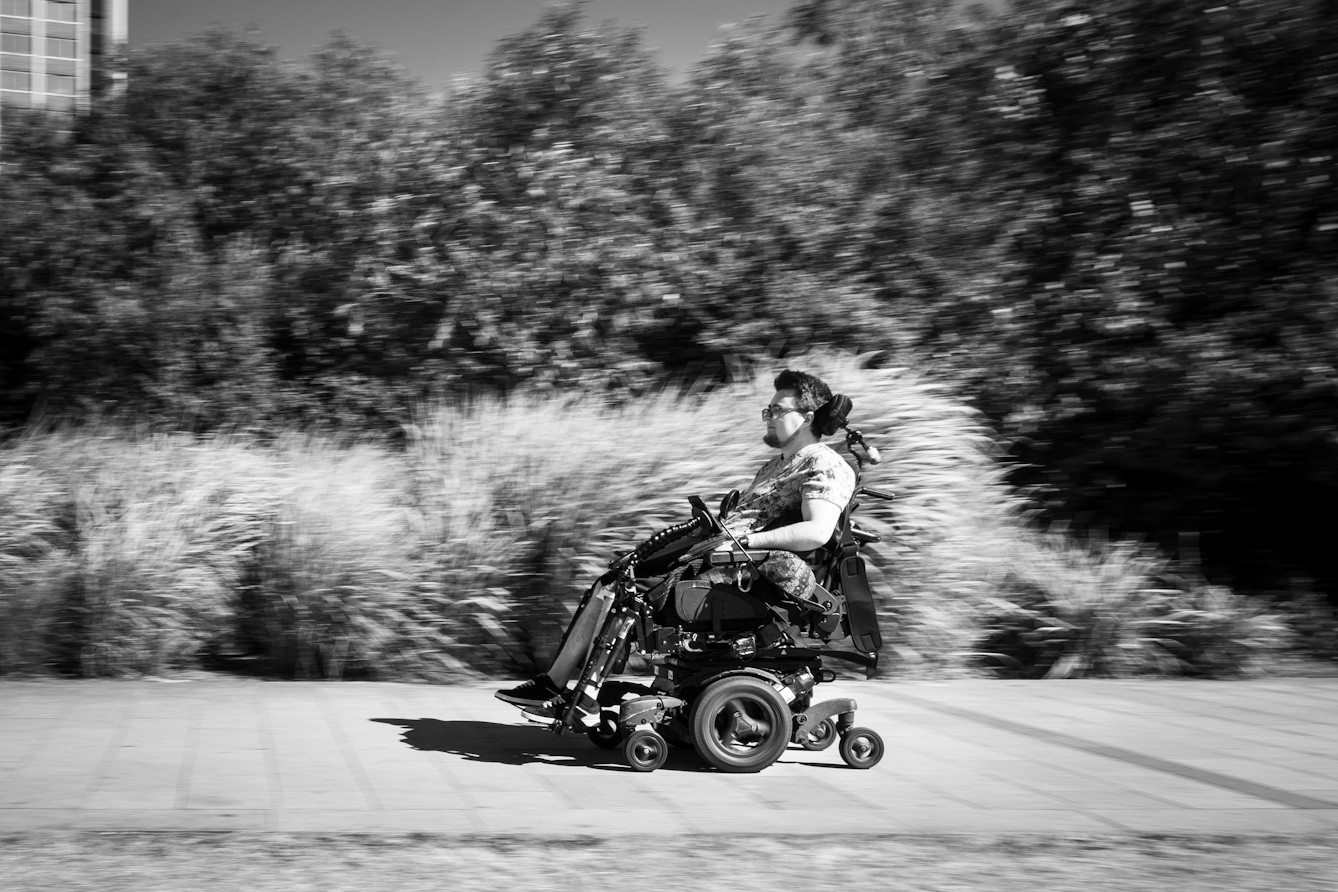
There are advantages to wheelchairs as well as disadvantages. My chair can go at 8 mph, which means I can take my greyhound for a gentle run, instead of being limited to walking pace. I refuse to see the inability to walk as a lesser way of being.
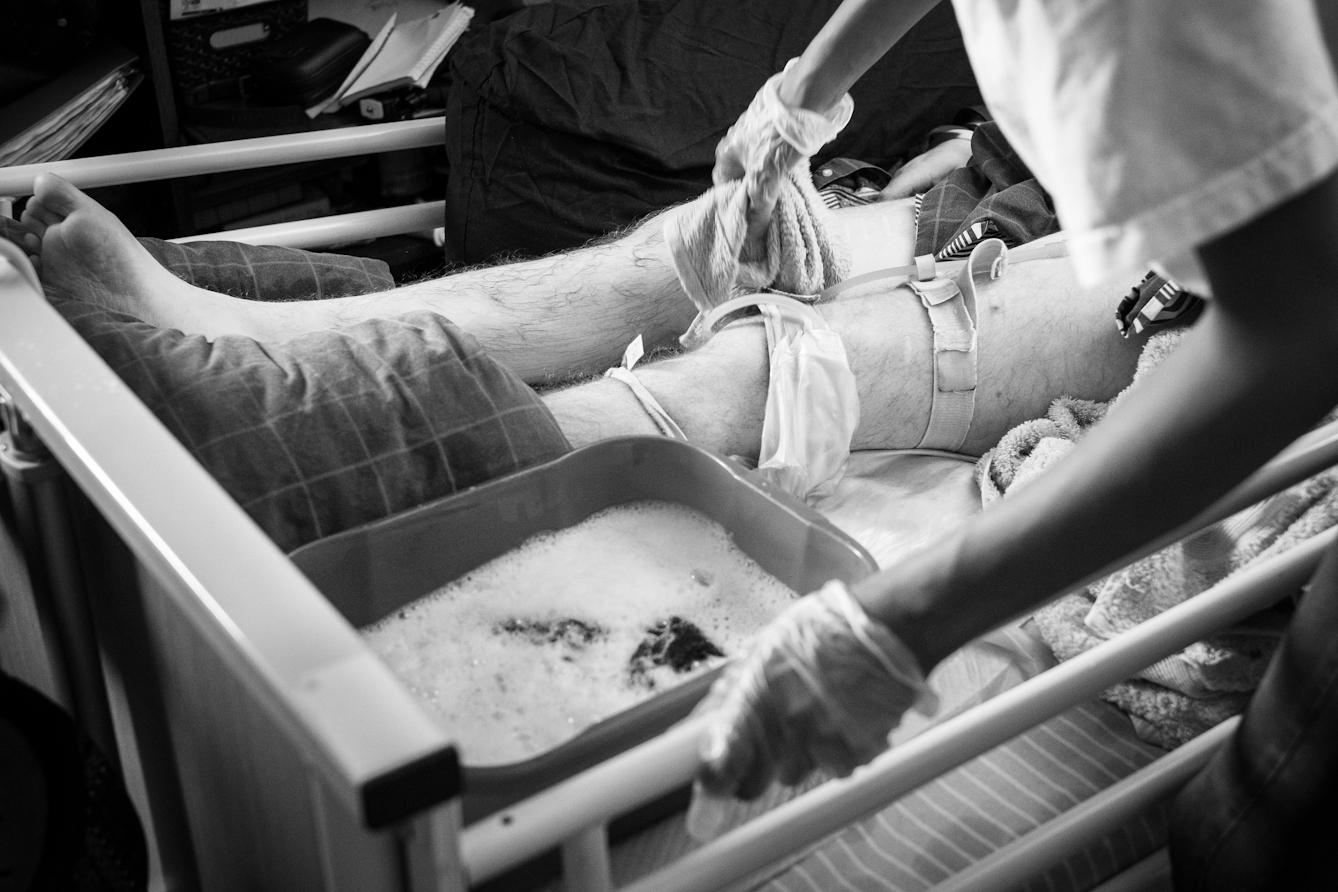
There is a dignity and an interdependence in the way my morning begins with a gentle wash. My PAs and I are so in sync, I rarely have to instruct them unless I want to – we are able to do tasks in a quiet partnership. But, without shower facilities, I can only be washed in bed in my flat, meaning I never truly feel clean.
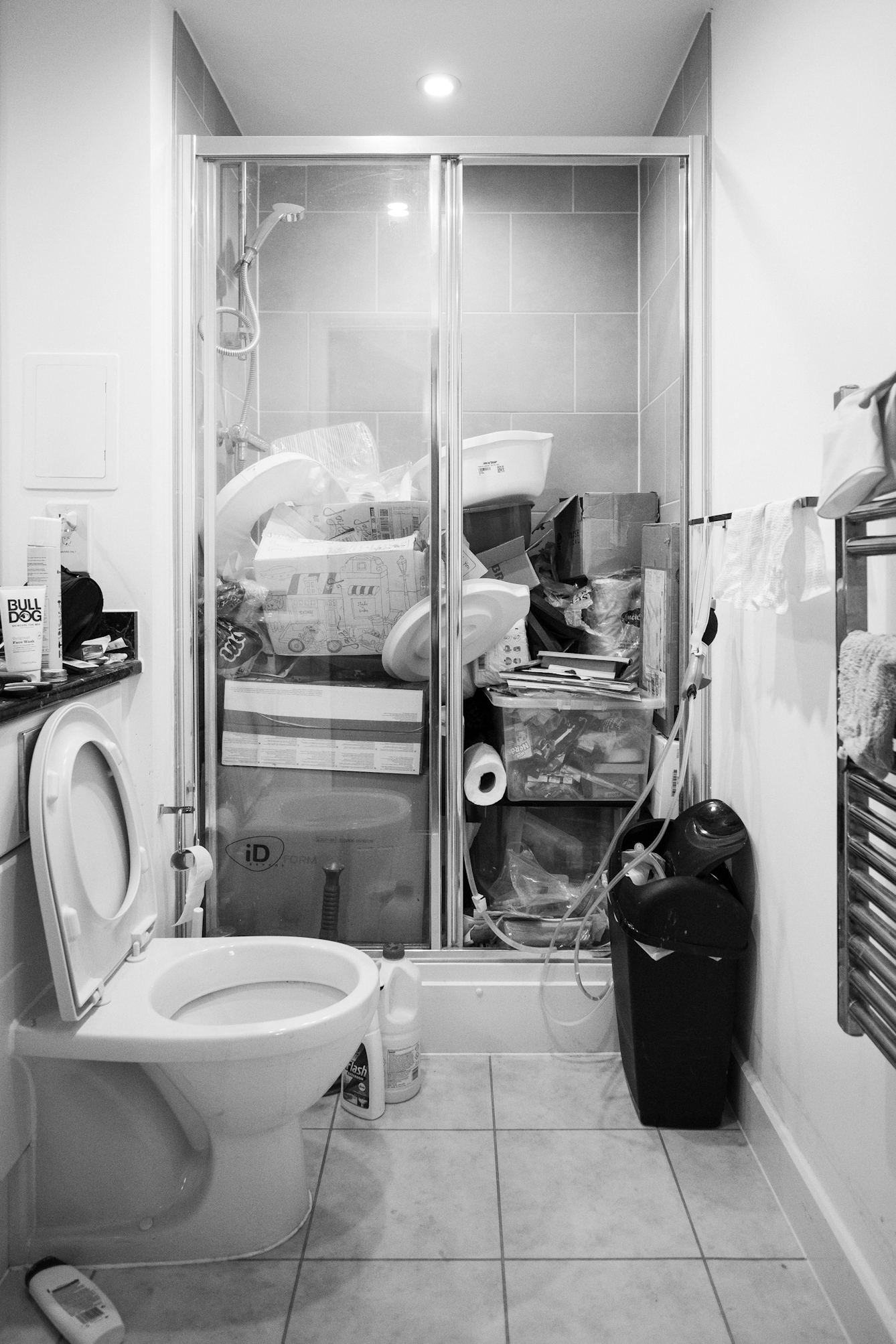
With the step into my shower, and the narrow door, there is no way of me using it to wash, so instead I store boxes of food and medical supplies inside it. I have endless catheter, incontinence and other disability-related products, and nowhere better to keep them.
Calculating care time to get control
Limits to the hours of care I get mean that attending a hospital appointment one day might mean being left twisted for hours in agony on a different day without the support to turn from my back to my side. It might mean skipping my bowel programme, and being left bloated and full, so I can perform my poetry at a high-profile event.
Finding enough spare care to go out in the evening is a challenge, and most of my friends are at work during the day. If I want to spend an hour playing with my dog, that’s an hour of sacrifice somewhere else. Sacrificing meeting my needs for an hour of pleasure is always painful. Every aspect of my life is a series of calculations, but being supported by a care agency instead would leave me no control over who entered my house or when.
I am not disabled by my body, but by a society that refuses to give me the resources I need to live a self-directed life. It is this society that allocates me limited care hours, forcing me to choose between being clean, dressed and fed, and leaving the house.
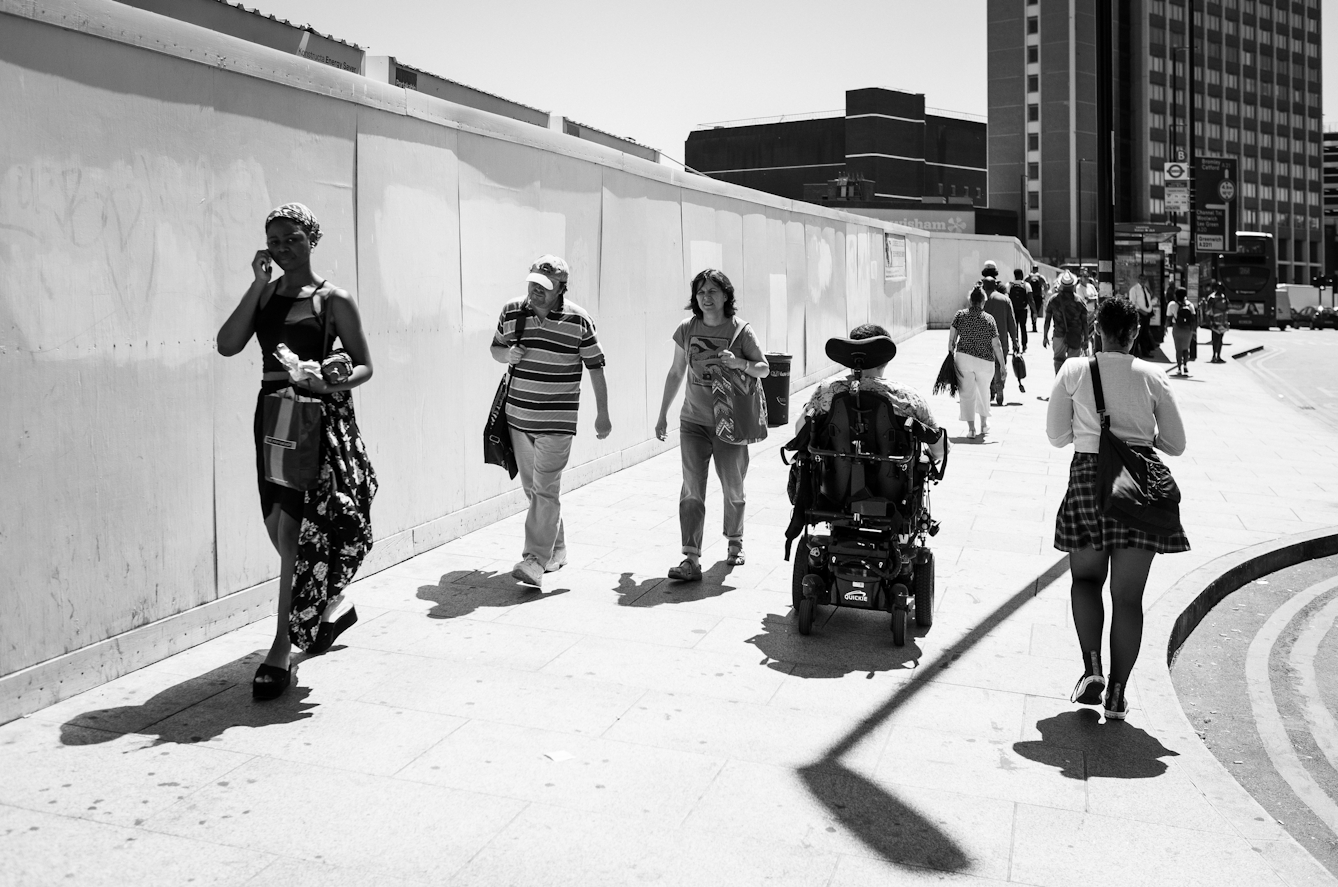
"Every aspect of my life is a series of calculations."
Defining independence
Everybody desires a degree of independence, but what do we mean by that word? It seems to me that disabled people are expected to be ‘dependent’ on the ‘goodwill of carers’, but we never speak critically of the dependence of non-disabled people on cleaners, say, or supermarkets. In truth, nobody leads an independent life in a society where we all depend on one another.
I aim to value the dependence in my life – to give thanks to the PAs who wash and dress me, and to find the value in being supported kindly. Independence, as a concept, cannot be applied to my life, but self-determination can, and that’s surely the core of what independence is. I may need another human being to work as my arms or legs, but I can define my desires and the directions I want my life to take, and that’s what is important to me.
The limitations of my body shape my life, but were there a cure I wouldn’t take it. I cannot separate the individual – myself – from my experiences, including experiences of pain and serious illness, for had I not had these experiences I would be a different person, and I like who I am. It is the social conditions under which disabled people are forced to live that I would alter.
If I was given the right support, my health conditions would maintain their impact on my life, but I wouldn’t also be facing the added social burdens that are put on top of me. Limited social care, being treated as a second-class citizen, barred from many public places and much of the transport system – these are the things I’m hoping to change for future people in my situation.
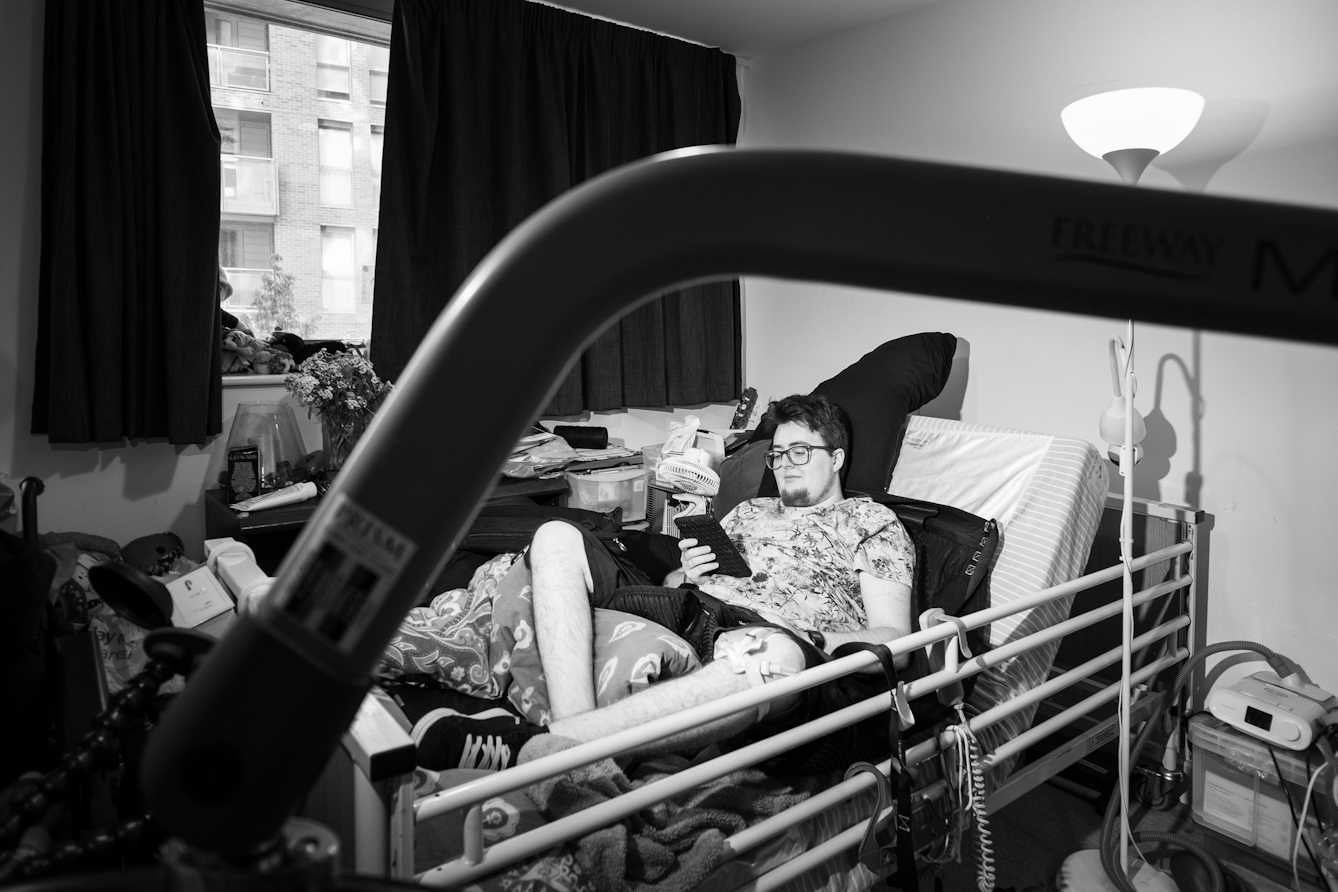
"Tucked up in bed at 21:00 at the latest, I am then alone."
Still waiting for the right support
Tucked up in bed at 21:00 at the latest, I am then reliant on my unpaid housemate who meets all my needs, but who I disturb as little as possible, because constant night-time interruptions are a challenge for someone who also works a full-time job.
My days start late and end early, a way of managing to ensure I have as much support as I need during the daytime. These limitations are both artificial and unnecessary, a result of a care system not funded adequately to meet the needs of disabled people.
If I had the support I need, I would be able to live a self-directed life – meeting all my medical needs, doing the physiotherapy necessary to control the pain associated with my condition, ensuring my special diet remains varied and full of the necessary vitamins. I would be able to book poetry performances and see friends. I would be able to build an adulthood. Instead, my time is mostly spent inside the same four walls, dreaming of independence.
About the contributors
Jamie Hale
Jamie is an artist, curator, and founder and artistic director of disability arts organisation CRIPtic Arts. They create poetry, comedy, scriptwriting and drama for page, stage and screen, and are currently directing a showcase at the Barbican Centre for autumn 2021 and a disability arts documentary. They have written for Wellcome Collection and the Guardian newspaper and have performed at venues including the Southbank Centre. Their poetry pamphlet, ‘Shield’, was published in January 2021.
Benjamin Gilbert
Ben is a senior photographer for Wellcome. He is happiest when telling stories with his photographs, whether that be the health implications of rural-to-urban migration in India, or the dedication of the workers who power the NHS.
